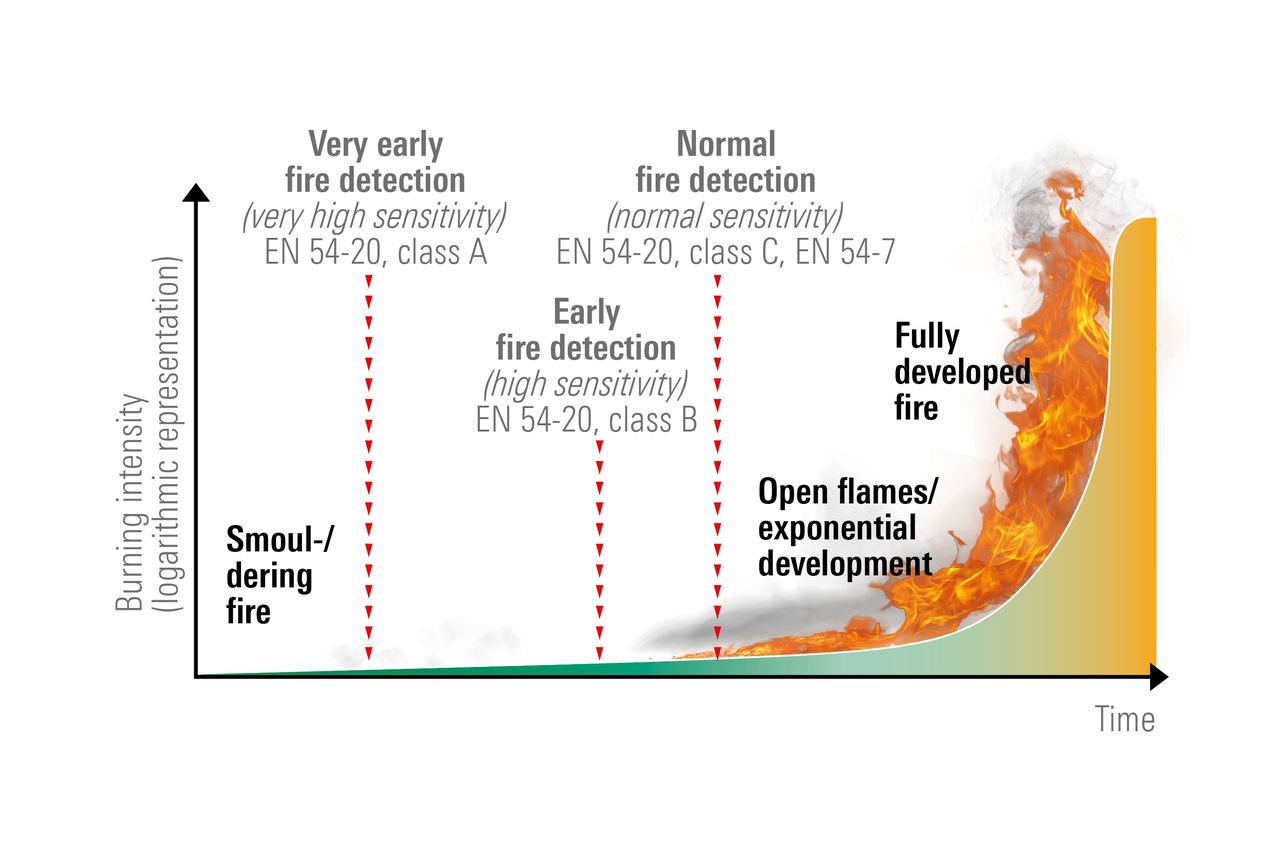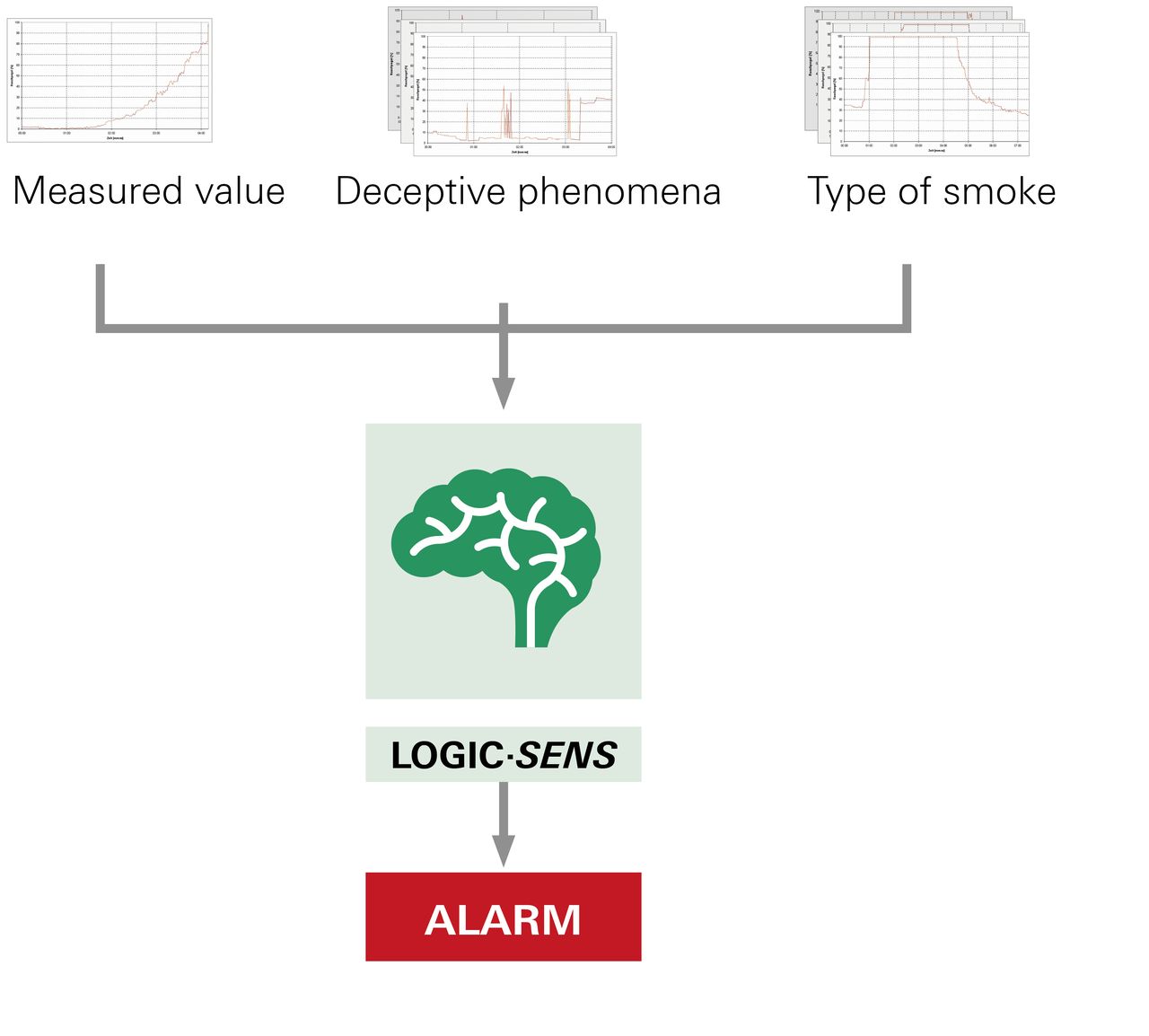Highly sensitive fire detection for a valuable head start
Save lives, protect assets and availability, these are the top priorities in fire protection. Intervention time is the main factor for minimising damage caused by fire and its consequences.
If a fire is detected while it is still in its early stages of development, there is almost always enough time to prevent the fire from development using the simplest of means. Shutting off the local power will often suffice, as this will deprive the fire of the supporting energy it still needs during this stage. Highly sensitive air sampling smoke detectors make this head start possible, while conventional detectors with normal sensitivity have to wait until the fire has reached a detectable size. If the fire is detected too late, severe fire damage, consequential damages and interruptions in operations will be practically inevitable.
Maximum immunity to false alarms, yet maximum sensitivity at the same time
TITANUS® air sampling smoke detectors from WAGNER offer maximum immunity to false alarms, while retaining maximum sensitivity as well. This immunity to false alarms is primarily achieved by three means:
WAGNER’s patented LOGIC∙SENS signal processing compares the signal curves of air samples taken with established smoke development patterns, thus dependably precluding false alarm scenarios, even in difficult application areas. LOGIC·SENS thus effectively complies with operating mode TM laid down in the German standard VDE 0833-2 on preventing false alarms.
Drift compensation ensures that the alarm threshold adjusts itself to the change in quiescent level (within the scope of normative specified limits) which is triggered by contaminated air or other background noise. This adjustment to the background contamination means that the same amount of smoke is required at all times in order to set off the alarm. This ensures uniform detection quality. It can thus be considered absolute fire detection. By comparison, air sampling smoke detectors without drift compensation have relative fire detection, as they incorrectly assess changing background conditions as being smoke density.




